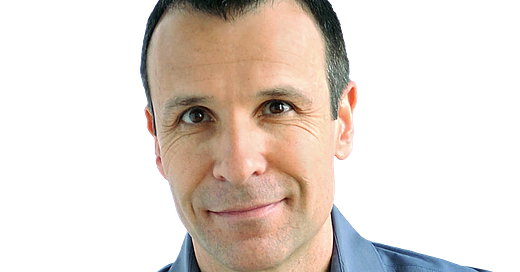Talking About Mistakes -- Ours
How we frame mistakes and decide to communicate about them can make a significant difference in how we are experienced and judged, and how we feel about ourselves
A mistake we make can be hard to stomach sometimes, especially if we know we should have known better, or the discovery of our error is publicly embarrassing to us.
Many people can own it, apologize and move forward. Others struggle with it.
There can be different reasons for this of course, some understandable and worthy of compassion. Yet, not everyone has ‘good’ reasons and that makes talking about what didn’t go well, or harm created, doubly difficult.
A big problem in this type of scenario is how we perceive ourselves and how we anticipate others will react creates doubt, anxiety and keeping the mistake to ourselves.
That’s a poor strategy and we know it. Maybe we choose it anyway. We become the person that can’t apologize, at least not for anything egregious.
It’s not only not admirable form, it’s looked down upon. A psychologist, Guy Winch, Ph.D. wrote about it and I can’t see anyone wanting to be analyzed like what he said.
“Accepting they were wrong, absorbing that reality, would be so psychologically shattering, their defense mechanisms do something remarkable to avoid doing so — they literally distort their perception of reality to make it (reality) less threatening.
“Their defense mechanisms protect their fragile ego by changing the very facts in their mind, so they are no longer wrong or culpable,” Winch writes.
Ow. Make it stop, right? But we all know people, and hopefully it isn’t us, who certainly can apologize but don’t it or if they do, it’s so rare that we struggle to remember the last time it happened.
“These people are not choosing to stand their ground; they’re compelled to do so in order to protect their fragile egos…” Winch says. “It takes a certain amount of emotional strength and courage to deal with that reality and own up to our mistakes.”
If you're of strong character and highly professional, guess what, you already own the power and strength to express (maybe a better word and framing) the mistakes or errors made.
“Admitting and correcting mistakes does not make you look weak; it actually makes you look stronger.”
Bruce Rhoades
“Everyone gets it wrong sometimes. Making mistakes is part of life. How we handle situations in which we realize we're wrong, though, says volumes about what kind of person we are.
“It takes high levels of honesty, integrity, and courage—especially in the public sector—to admit when you're wrong. Perhaps that's why many leaders don't do it.”
“Typically, when leaders realize they’ve made a mistake, others have noticed, too. Leaders who then fail to admit they were wrong leave employees feeling as though their leaders consider being right more important than being honest.
"Taking responsibility demonstrates that leaders value integrity over the easier paths of laying blame or hoping their mistake won’t be exposed. Admitting when you’re wrong also shows you’re aware of, and therefore in a position to learn from, your mistakes. This can build further confidence in your leadership.”
Chris McCloskey
“The best leaders are willing to be vulnerable and say to their team, ‘Here’s a mistake I made, and here’s how we’re going to fix it.’”
Mike McHargue
“As any great leader will tell you, they have made many mistakes along the way. They will admit that it was the collective insight from bad decisions that taught them invaluable lessons – and how to see opportunities in everything and anticipate the unexpected more quickly.
"Successful leaders are transparent enough with themselves and others to admit their wrong doings so that those around them can also benefit from their learnings. They call this wisdom and many leaders lack it – because they are too proud to recognize mistakes as valuable learning moments for themselves and others.”
Glenn Lopis
"Through nearly 25 years of trust-focused research and experience, we can give one piece of guidance to leaders seeking to increase their trustworthiness: Take responsibility for your mistakes.”
“Do you remember the last time you didn’t just ‘get through’ a mistake, but embraced it as a ready-made opportunity to deepen trust?”
Michelle Reina
Reputation aspect of this segment — Expressing mistakes is strength. Strength that is moral at the root gets respected. Respect is reputation health, which equals trust, influence and greater likelihood of receptiveness to persuasiveness when necessary.
In other words, we earn more respect and protect against contempt and loss of status when we show ourselves capable of self awareness, social awareness, compassion, humility and courage to express mistakes, learn from them and commit to correcting them in admirable ways.
Michael Toebe is the creator of Reputation Notes and founder and reputation specialist at Reputation Quality, a practice that serves and helps successful individuals and organizations in further building reputation as an asset and when necessary, ethically and successfully protecting, restoring and reconstructing it.
NOTE: if you would like to be interviewed for the newsletter and can talk about important, interesting and insightful matters of reputation, you can contact me at Michael.Toebe@Reputation-Quality.com.





